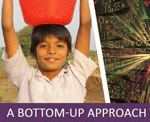News
Published on Tue, 2012-03-06 11:22
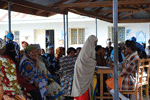
Women's health clinic in
Tanzania.
(Photo: advencap/Flickr/CC)
|
The Southern African Human Rights NGO Network (SAHRINGON) Tanzania Chapter, national focal point of Social Watch, has urged the government to amend or repeal all discriminatory laws based on gender for the country to achieve the equality between men and women provided by the Millennium Development Goals (MDGs), reported Tanzanian newspaper The Guardian.
|
Published on Mon, 2012-03-05 12:46
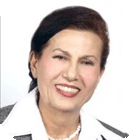
Svetlana A. Aslanyan
|
Armenian legislation supports women’s rights, but the laws often clashes with daily habits. The non governmental Center for the Development of Civil Society (CDCS), presided by Svetlana A. Aslanyan, launched some years ago the program “Empowering young women in rural areas”, that included seminars on human rights, gender equality, leadership as well as training courses and publication of materials and books. The aim was to increase the role of rural women in the decision making processes at both local and national levels. The seminars have helped young women to discover their abilities and to be active participants in civil society.
|
Published on Mon, 2012-03-05 08:14

Photos of missing and murdered
aboriginal women lent a somber
presence to the three-day
Assembly in Vancouver. (Photo:
Viveca Ellis/The Epoch Times)
|
With the Missing Women’s Inquiry ongoing in Vancouver, a Canadian national forum aimed at improving the security and safety of First Nations communities couldn’t have come at a more opportune time last month, wrote journalist Viveca Ellis on an article published by The Epoch Times international media network.
|
Published on Thu, 2012-03-01 13:12

A crowd in a mall in Robinson,
Pennsylvania, USA,
(Photo: David Fulmer/Flickr/CC)
|
The production and trade indicators that are usually used to measure prosperity are the product of unsustainable consumption patterns in the richest social sectors and countries, and these patterns promote the plundering of natural resources, damage the environment and do nothing to reduce poverty. The Social Watch Report 2012 enhances our understanding of this phenomenon and of proposals to set concrete limits that will be put forward next June at the United Nations Conference on Sustainable Development in Rio de Janeiro (Rio 2012).
|
Published on Thu, 2012-03-01 07:29
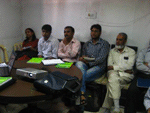
Photo: Social Watch India
|
“The notion of evaluating social development on the basis of economical growth should change, as the studies from different aspects reveal the growing disparities in the societies across the globe,” said Dr.Yogesh Kumar, Executive Director of Samarthan and National Convener of Social Watch India. Kumar was talking in Bangalore at the launching of the Social Watch Report 2012.
|
Published on Wed, 2012-02-29 08:16

Photo: AFTINET
|
The 11th Round of Negotiations of the Trans-Pacific Partnership free trade agreement negotiations between Australia, the US, New Zealand, Malaysia and four other countries starts in Melbourne on March 1. Civil society groups from those countries are in that city to contest corporate influence and debate the issues.
|
Published on Tue, 2012-02-28 11:52
“Although most central banks are independent, they are in the end government bodies. As such, central banks are subject to the human rights obligations of their state,” argues in its second publication the initiative “A bottom up approach to righting financial regulation”, a consortium of civil society networks and organizations, including Social Watch and some of its members.
|
Published on Mon, 2012-02-27 07:55
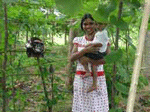
A farmer and her child in a
MONLAR-supported garden.
(Photo: Mahjabeen
Chowdhury/PWRDF)
|
Ensuring guaranteed and diverse seed supplies and crop production has been an important part of the work of the Movement for National Land and Agricultural Reform in Sri Lanka (MONLAR), focal point of Social Watch in Sri Lanka. Here is the story of one family who, with its support, has been able improve both its diet and its income through bio-diverse agricultural practices.
|
Published on Thu, 2012-02-23 15:39

Demonstration in Athens convened
by Syntagma movement on February
19. (Foto: odysseasgr/Flickr/CC)
|
The terms of the European 'bailouts' as the one approved this week for Greece – the severe public spending cuts, the onslaught on public ownership – all reflect the experience of the developing world in the 1980s and ’90s, according to Nick Dearden, director of the Jubilee Debt Campaign. “The precise purpose of these policies” was “to shift the burden of financial crisis from the financial system and onto developing nations,” he warned.
|
Published on Thu, 2012-02-23 14:35
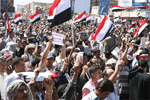
Yemenis protesting against the
government in Sana’a.
(Photo: UN News Centre)
|
The International Federation for Human Rights (FIDH), and its partners in Yemen – the Human Rights Information and Training Center (HRITC, national focal point of Social Watch) and the National Organization for Defending Rights and Freedom (HOOD) — call on the United States government to uphold its international responsibilities and open an investigation into torture against former President Ali Abdullah Saleh, who is in the North American country now.
|

|







